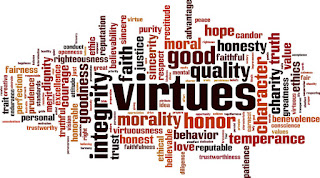A634.7.4.RB- Egoism: Psychological and Moral
What is your view on egoism?
Since there are so many different
facets of egoism I tend to view it by how an individual acts based on "when"
they benefit and not necessarily how. I can't really think of an act that
doesn't somehow benefit an individual, and really the hardest thing about all this
is in the proof of it. How can you prove or disprove an act based on
self-interest or not? How can I prove your selfless act doesn't somehow please
you? If your motivation for selflessness is centered only on a feeling of good
inside then why does that quantify altruism versus egoism as Ziniewicz (n.d.)
defines? As stated previously, the "when" is what tips the scales
from altruism to egoism for me personally. If an individual benefits in the here
and now from something then I deem that action in the egoism realm, and we all
act that way with many daily actions. The human interaction aspect also needs
to be looked act when judging egoism.
How do you see ego getting in
the way of ethical decisions in the workplace?
How will a given interaction or
dilemma affect an individual, myself, and the organization as a whole needs to
all be considered when addressing ego. Maybe they all benefit, but I highly doubt
it because interests never tend to satisfy all needs, and this is why egoism is
difficult to manage. Audi (2009) references the notion that we are in-fact
individuals but also reside as a collective that can all benefit. I don't think
an individual will provide a good work ethic if they are motivated or inclined
to do so. Many argue that motivation is unethical and egoistic. If money
motivates me because I want to provide for my family and self, then obviously
my action of work is in some form of egoism. I may not desire to do the actual work
but am doing it because in some fashion it pleases me, even though the actions
are good or others.
Should leaders get benefits
others do not receive?
Leader incentives are seen all the
time by subordinates and typically they don't hold very good regard for those
who aren't receiving them. As a young subordinate I remember questioning why
these leaders are receiving extra benefits based on the work that I and my
peers were doing. If we are all doing our job then why does one facet receive
an extra benefit? Now I would agree that all should benefit, but some argue
that simple employment is your benefit and that we shouldn't seek more or feel
entitled. Overtly presenting a leader with an additional benefit can really do
two things, it can motivate individuals to strive to attain higher positions to
receive these benefits, or it can distract workers and hamper further work efforts.
How could leaders be better rewarded
to promote ethical behavior?
Maybe organizations best benefit not
only for the production leaders bring to the table but rather the how. I also
argue that leaders may take advantage of this facet to mask their inability to
produce. For me personally just about every facet of everything needs to find balance
and moderation. We should never strive to exemplify only one facet or reward a
certain something. We should strive to always look at the big picture, but also
respect individual perspectives as well. One major problem with rewarding is
that they typically are seen in the here and now versus focusing on the
sacrifices that it took to get there. Even though sacrifices are made in the
short-term, a corporation's vision should be as far out to the extent of
relevance.
Audi, R. (2009). Objectivity without Egoism: Toward Balance in Business Ethics. Academy of Management Learning & Education, 8(2), 263-274. Retrieved February 24, 2021, from http://www.jstor.org/stable/40214597
LaFollette, H. (2007). The Practice of Ethics. Malden, MA: Blackwell.
Ziniewicz, G. (n.d.). Obstacle to Ethics: Egoism. Retrieved from https://www.americanphilosophy.com/bus_eth/egoism.html




Comments
Post a Comment